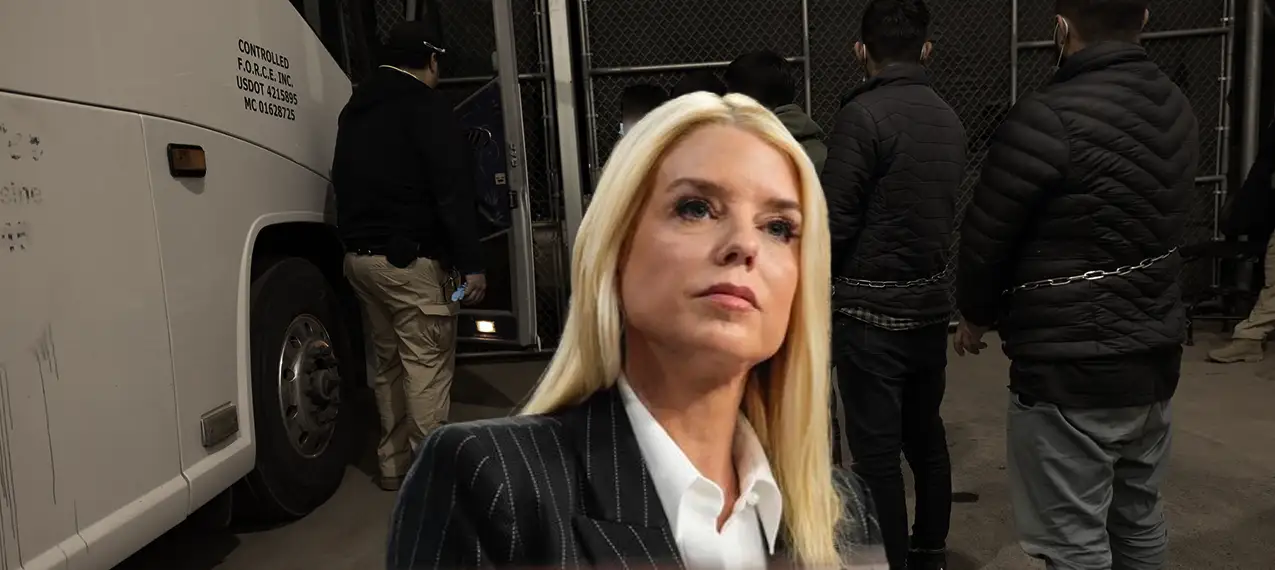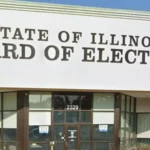
On Tuesday, April 22, the U.S. Supreme Court ruled in Monsalvo Velázquez v. Bondi that when a deadline for voluntary departure or reopening a case falls on a weekend or holiday, the deadline extends to the next business day.
While immigration has been at the forefront of the news during the Trump administration, the ruling in this case is not likely to impact the President’s big-picture immigration objectives. The majority’s opinion ruled on narrow procedural grounds, defining what “sixty days” means in this specific immigration context. But while this case alone may not turn the new immigration policies on their heads, much of the current litigation challenging Trump’s immigration and deportation efforts has focused on procedure rather than goals. s is often the case when legal issues become political ones, court rulings on narrow procedural grounds can have sweeping effects for an administration’s policies.
Petitioner Monsalvo Velázquez, an immigrant from Mexico and longtime Colorado resident, faced deportation after living in the U.S. for nearly two decades. Monsalvo conceded his removability, as he had entered the U.S. unlawfully as a teen, but he requested to depart voluntarily. Voluntary departure is granted to immigrants of good moral character, allowing them to avoid forced removal. This opens the door for later readmission to the U.S.
Monsalvo was granted a sixty-day window to leave the country. That deadline landed on December 11, 2021, a Saturday. Monsalvo submitted a motion to reopen his case on December 10, and it was accepted for filing by the Board of Immigration Appeals (“the Board”) on Monday, December 13. The Board denied his motion to reopen and held that his motion had arrived too late. The Board found that Monsalvo, having missed his window for voluntary departure or the reopening of his case, was subject to forcible removal and the penalties associated with it.
Monsalvo argued that because the sixtieth day fell on a weekend, the deadline to file a motion extended to the next business day. The Board and the Tenth Circuit rejected this argument, holding that the sixty-day voluntary departure deadline refers to calendar days.
Justice Gorsuch, writing for the majority, held that the Court had jurisdiction to hear the case and was required to interpret Monsalvo’s departure deadline with the “longstanding” assumption that the word “day” excludes all weekends and holidays in the immigration context. Monsalvo Velázquez v. Bondi, No. 23-929, slip op. at 12-13 (2025). He claimed that the Court has assumed this since the 1950s. Nothing the Government claimed to the contrary, he argued, overcame that basic presumption. Chief Justice Roberts and the Court’s three liberal Justices joined Justice Gorsuch’s opinion.
Justice Thomas, dissenting, wrote that “the merits-stage briefing revealed a serious, novel jurisdictional objection that may bar our review.” Monsalvo Velázquez v. Bondi, No. 23-929, slip op. at 1 (Thomas, J., dissenting) (2025). Given this complication , Justice Thomas said the Court should have remanded the case to first let the Tenth Circuit consider the jurisdictional question.
Justice Alito, also dissenting, agreed with Justice Thomas that the Court should remand this case for the lower courts to first decide “whether it possessed jurisdiction to entertain petitioner’s petition for review.” Monsalvo Velázquez v. Bondi, No. 23-929, slip op. at 1 (Alito, J., dissenting) (2025). On the merits, Justice Alito argued that the case is straightforward—sixty days is sixty days—the sixtieth day falling on a weekend or holiday is inconsequential.
Finally, in her own dissent, Justice Barrett argued the Court is wrong about jurisdiction, but for a different reason. She wrote that Justice Thomas and the Court “disagree about how much of the document issued by an [Immigration Judge] or the [Board of Immigration Appeals] is open to challenge.” Monsalvo Velázquez v. Bondi, No. 23-929, slip op. at 1 (Barrett, J., dissenting) (2025). This is unnecessary, Justice Barrett argued, “because no matter how broadly you construe it, does not dispute a single word in it.” Id. Justice Barrett concluded “I would leave the issue alone.” Id. at 3.
This is not the first instance during this term where we see significant disagreement among the Justices with regards to jurisdiction. In March, Justice Thomas authored a dissent where he criticized his colleagues for not taking cases involving legal disputes between states. The Constitution grants the U.S. Supreme Court original jurisdiction in these such cases; in his dissent, Justice Thomas quoted the former Chief Justice Marshall: “We have no more right to decline the exercise of jurisdiction which is given, than to usurp that which is not given.” Alabama v. California, 145 S. Ct. 757, 759 (Thomas, J., dissenting) (2025) (quoting Cohens v. Virginia, 6 Wheat. 264, 404 (1821)). Justice Alito joined Justice Thomas’s dissent.
The Court’s conservatives taking issue with recent jurisdictional decisions has not been an isolated incident. In an unrelated case this term, Justices Thomas and Alito wrote a strongly worded dissent in which they scolded lower courts for repeatedly overstepping the boundaries of their jurisdiction. Current federal statutes “sharply limit the power of federal habeas courts to review state criminal convictions,” but some Sixth Circuit judges have shown a habit of disregarding Supreme Court precedent and exhibit a “blatant and repeated disrespect for the rule of law.” Davis v. Smith, 145 S. Ct. 93 (Thomas, J., dissenting) (2025). Jurisdiction—the authority of a particular court to hear a case—is a preeminent factor to any legal proceeding. When courts exceed or strain those limits, it raises serious concerns for the separation of powers and the rule of law.
While immigration has been a hotly contested legal issue under the Trump administration, this case’s narrow scope and procedural nature is not likely to affect the Government’s larger-scale immigration objectives.
SUPPORT LANDMARK LEGAL FOUNDATION
We are truly facing existential threats to our individual rights and liberties, the Constitution, and our national character. If unchallenged, this assault on our very way of life will ruin our great nation. With your financial and moral support, Landmark is not going to let that happen without a fight. Will you join us?
JOIN OUR MAILING LIST
Never miss an update from Landmark Legal Foundation as we continue the fight to preserve America’s principles and defend the Constitution from the radical left.





